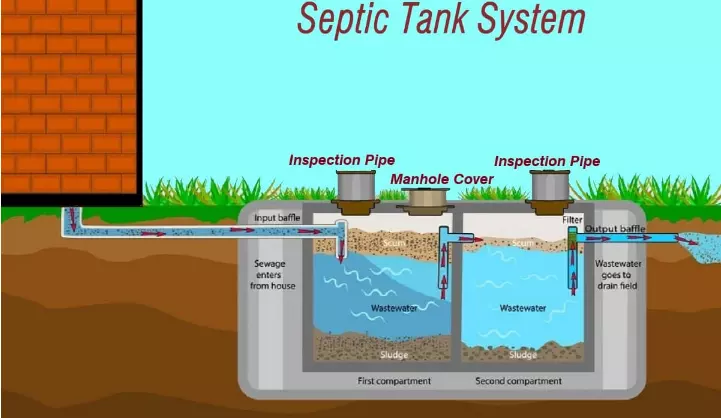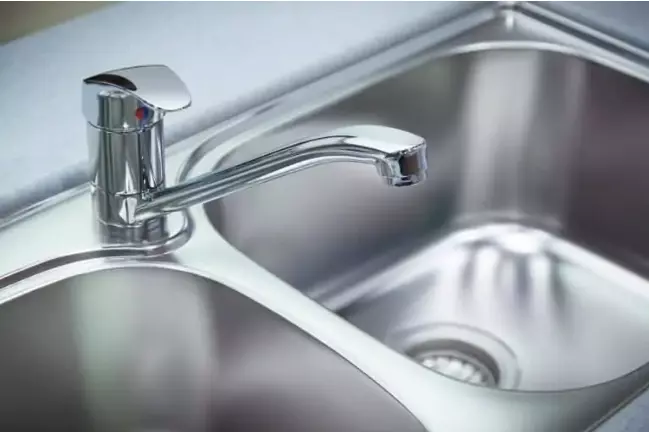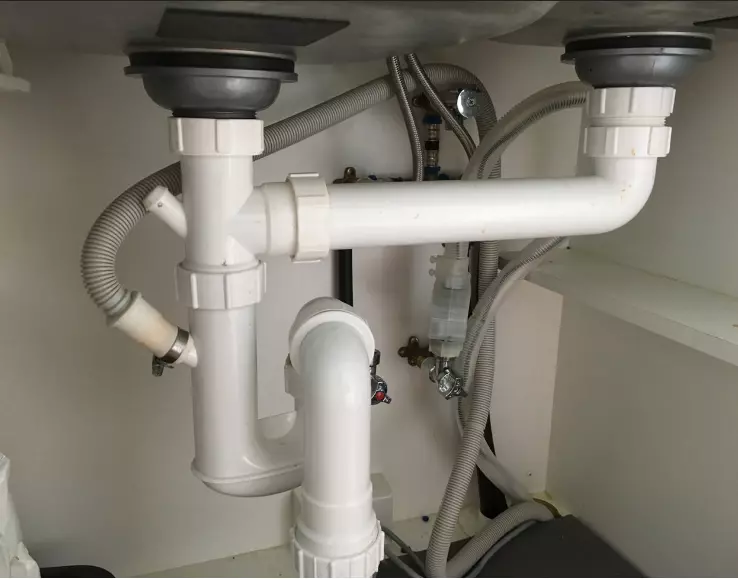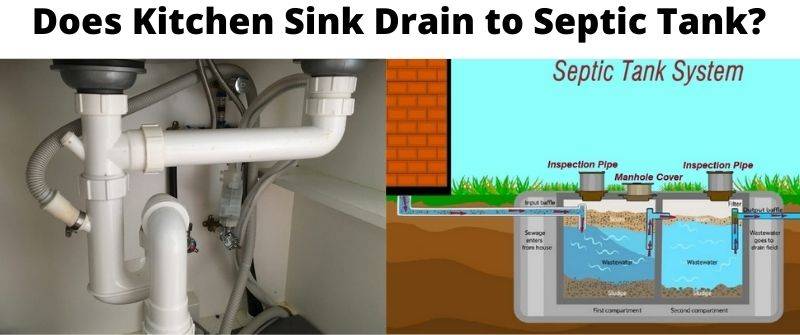There is something about a clean, uncluttered kitchen sink that speaks of order and efficiency. In most homes, the kitchen is often the hub of family activity, a place for gathering and socializing, for getting meals on the table.
In this post, we will tell you more about how to maintain a kitchen sink drainage system using the proper methods. Keep reading!
Does Kitchen Sink Drain to Septic Tank?
In plumbing practice, kitchen sinks should not drain into the septic tanks because the septic will fill faster, which increases the cost of exhauster services. Also, kitchen waste is not that bad for septic. However, it depends on your drainage system as it was approved within your building plan.
It also depends on where your kitchen wastewater goes. For instance, the water that goes down your kitchen drain does not empty directly into a septic tank, if you have one.

Instead, it first flows into an underground pipe that goes to either a septic tank or directly to your city’s sewage system.
In some cases, waste from several houses joins before reaching its final destination, while in others there is a separate line for each house.
After passing through this pipe, the waste enters either a septic tank or a sewage treatment plant, depending on whether your home enjoys the connection to the city’s sewage system.
Reasons to Separate Kitchen from Septic Tank
1. It Fills up Fast
If you have your kitchen sink draining into your septic tank, you are going to clog up your septic tank faster than if you did not.
To begin with, a septic tank only needs food waste and toilet paper run through it like any other tank. That is all its design functions for, and there is no reason to treat it as anything else.
So, why would you want to put soap, detergent, and grease into your septic tank? It will clog up your system faster and could even render it useless.
It will overload your system and cause it to fill up faster. In addition, the constant flow of water from your kitchen sink may overwork your drain field and cause it to fail earlier than expected.
2. Hygiene
The risk of contamination is much higher. A kitchen sink draining into a septic tank can cause a disturbance in the natural balance of waste decomposition that takes place within it.

This often leads to blockages and bad odors in and around the house.
As a result, the water from your kitchen sink becomes a breeding ground for germs and bacteria, which can cause illness and sickness.
If your kitchen sink drains directly into your septic tank, those germs and bacteria could end up inside it and affect the overall health of your family.
This is because there are many chemicals and other substances that have access into the kitchen sink over time, which can alter this balance.
When these chemicals mix with water they break down into different forms and cause an imbalance in the natural cycle of decomposition, which ultimately causes more problems than it solves.
3. Save on the cost of removal
You will need to clean the septic tank more often. If you are going to be dumping a lot more wastewater into your septic tank, then this means that it will need cleaning out more often than usual as well.
So, if you are looking for ways to reduce costs when it comes to maintaining your drainage system, then having your kitchen sink draining separate from the rest of the drains will certainly help with this.
4. You can use Kitchen Water in the Garden
As we noted in another guide, kitchen sink water is good for plants and gardening. Kitchen wastes contain lots of nutrients that can be used to fertilize your garden plants and keep them healthy.
It also prevents you from wasting all that clean drinking water that goes down the drain when washing dishes and cleaning vegetables.
You can recycle kitchen water by directing it into your lawn plants. Read more on tips when kitchen sink drains into the garden and used to do your gardening.
5. Prevent offensive odors
Another advantage of having a separate drainage system for your kitchen sink is that you will prevent offensive odors from being released into the atmosphere.
Food and grease buildup inside pipes usually causes foul odors to be released into your home or property when you use water in any part of your plumbing system.
The good thing about having a separate drainage system for your kitchen sink is that this does not affect other parts of your plumbing system, hence preventing bad smells from escaping into the atmosphere.
Tips to avoid Kitchen Sink Drain from Combining to Septic
First, know the age of your system. This can help you to plan ahead and take care of the problem before it gets out of hand.

Next, check the area in which the water has been flowing for any signs of cracks, holes, or any type of damage.
It is also a good idea to inspect the pipes that are connected to the sink drain.
You should also make sure that there is nothing that could be blocking the flow of water by using a rubber plunger or a wet cloth.
If you notice anything that looks like a clog, then you should remove this immediately so that it does not cause damage to your pipes.
Also, use a pressure gauge when checking for leaks. If there is no apparent leak, then you will want to try using an air compressor. This will allow you to get into hard-to-reach areas where there may be some small leaks.
You will also want to try using bleach solution or bleach tablets in order to eliminate any mold or mildew that may have built up inside of your pipes and clean up any leaks that have accumulated in your drain pipe.

As a homeowner, I am specifically keen on home improvement. I am passionate about homes, yards, and home improvement. I blog on home ideas and reviews on solutions that make homes better.
